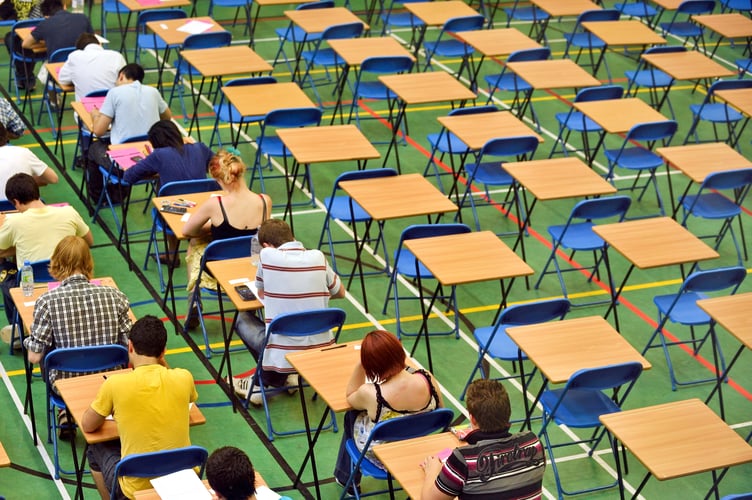A-level students in Torridge performed worse this summer than they did in 2020, the first year disrupted by the coronavirus pandemic, new figures show.
Department for Education figures reveal how students across England did in their summer A-levels, with little change in the gap between the poorest students and their peers.
The Association of School and College Leaders said the Government must increase funding to support disadvantaged pupils and urged Labour to abandon the previous Government's plans to scrap some qualifications.
In Torridge, 78 students completed A-levels this summer, achieving an average score of 34.8 – equivalent to a grade C+.
This was up from 28 the year before, but down from 2019-20, when they scored 38.8 – equivalent to a B.
Nationally, the average point score per entry for A-level pupils was 35.5, slightly higher than in 2022-23, although the average grade remained a B-.
The figures also show the attainment gap between the most disadvantaged pupils and their peers is unchanged since last year, with an average score of 30.1 and 35 respectively.
Sarah Hannafin, head of policy at school leaders' union NAHT, said the gap remaining was "concerning".
She said: "The previous administration failed to invest what was needed to help pupils and schools catch up on lost learning following the pandemic, or to address either the root causes or symptoms of child poverty.
"There is a broader issue too, however. A-levels, with their high stakes final exams and crammed curriculum, do not adequately prepare young people for either further study or the world of work.
"It's vital the Government uses its ongoing curriculum and assessment review to provide schools and colleges with a 16-19 qualification offer which better meets the needs of all students and sets them up for a brighter future."
Kevin Gilmartin, post-16 specialist at the Association of School and College Leaders, said: "Our biggest concern is the gap between disadvantaged students and their peers. It is not just that they record lower results on average but that far fewer of them take A-levels in the first place.
"This inequity will become even more serious if other post-16 qualifications such as BTECs and other applied general qualifications, are scrapped in line with the previous Government’s plans."
He strongly urged the Government to reverse the policy of scrapping these qualifications, which provide a pathway into careers and further study for many disadvantaged pupils, and called for more funding to support such students.
A DfE spokesperson said: "These figures lay bare how baked-in inequalities in our education system are still having too big an influence on young people’s outcomes.
"Through our ambitious reforms we are driving high and rising standards in our schools, providing targeted support to disadvantaged areas and supporting schools to recruit and retain the teachers they need.
"By tackling the root causes of inequality which hold young people back and ensuring every student has access to a high-quality education, we will create a fairer system that empowers every young person to succeed."




